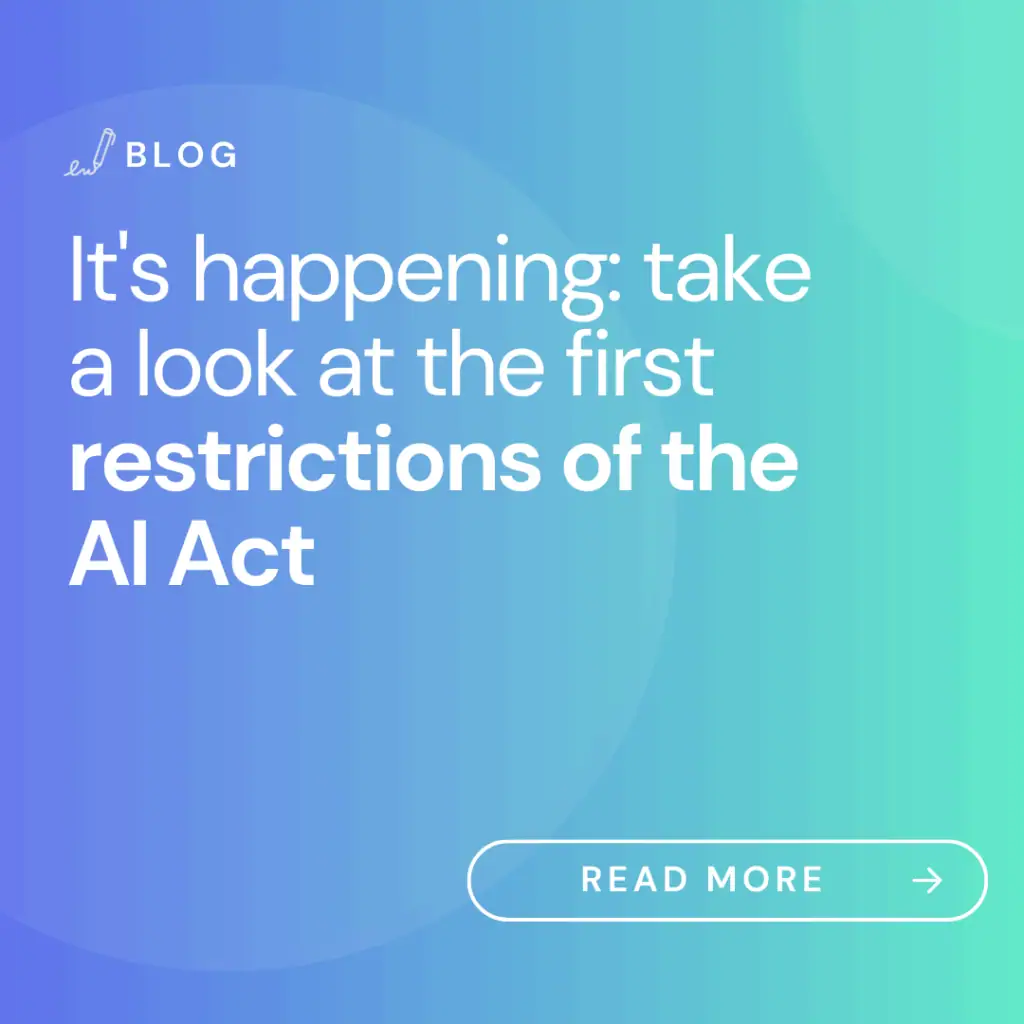

On February 2, 2025, the European Union took a historic step by implementing the first bans under the Artificial Intelligence (AI) Act. At Lawwwing, we’ll tell you how they might affect you.
The EU’s Artificial Intelligence Act is considered groundbreaking as it is the world’s first comprehensive regulation establishing a specific and binding legal framework for AI, positioning Europe as a global leader in the field.
These bans aim to ensure the ethical and, above all, safe use of AI, protecting the fundamental rights of European citizens.
If a company wants to use AI in the workplace or suspects it is already doing so, it will need to be cautious about how it applies the technology. Here are some of the key bans that companies must now comply with:
In addition to these bans, AI providers and those deploying AI systems must ensure their teams have the necessary knowledge and skills to properly use and manage AI, as stated in the regulation.
These bans impact all businesses, but some industries will be affected more than others. So far, the most impacted sectors include security and analytics companies, sports organizations, and human resources firms, which may need to rethink their workflows.
The penalties for non-compliance are serious! Companies violating these bans could face fines of up to €35 million. If who fails the ban is a business, the fine will be 7% of its global annual income from the previous financial year, depends on which amount is higher.
In other words, if 7% of a company’s worldwide revenue exceeds €35 million, the fine will be 7% of its revenue. If not, the penalty will be €35 million. The Spanish AI Supervisory Agency (AESIA) will be responsible for enforcing these fines.
Although the AI Act officially came into force on August 1, 2024, it won’t be fully applicable (with all its restrictions) until August 2, 2026. However, as often happens, there are exceptions. Let’s take a look!:
The new AI Act proves that Europe is determined to lead in AI regulation. This is crucial for the European market because while many AI systems minimal risk and help solve complex problems, others introduce risks that must be managed to prevent harmful consequences.
With the increasing adoption of AI, we must be sure it is used ethically and responsibly. These new rules not only protect consumers but also businesses, guaranteeing that AI is used fairly, transparently, ethically, and safely.
Interested in this topic? Would you like to know more about the bans currently in place in Europe? Or the exceptions to these rules?
This is a complex subject, and we’ve only scratched the surface. If you found this interesting, leave us a comment, we’d love to hear your thoughts!